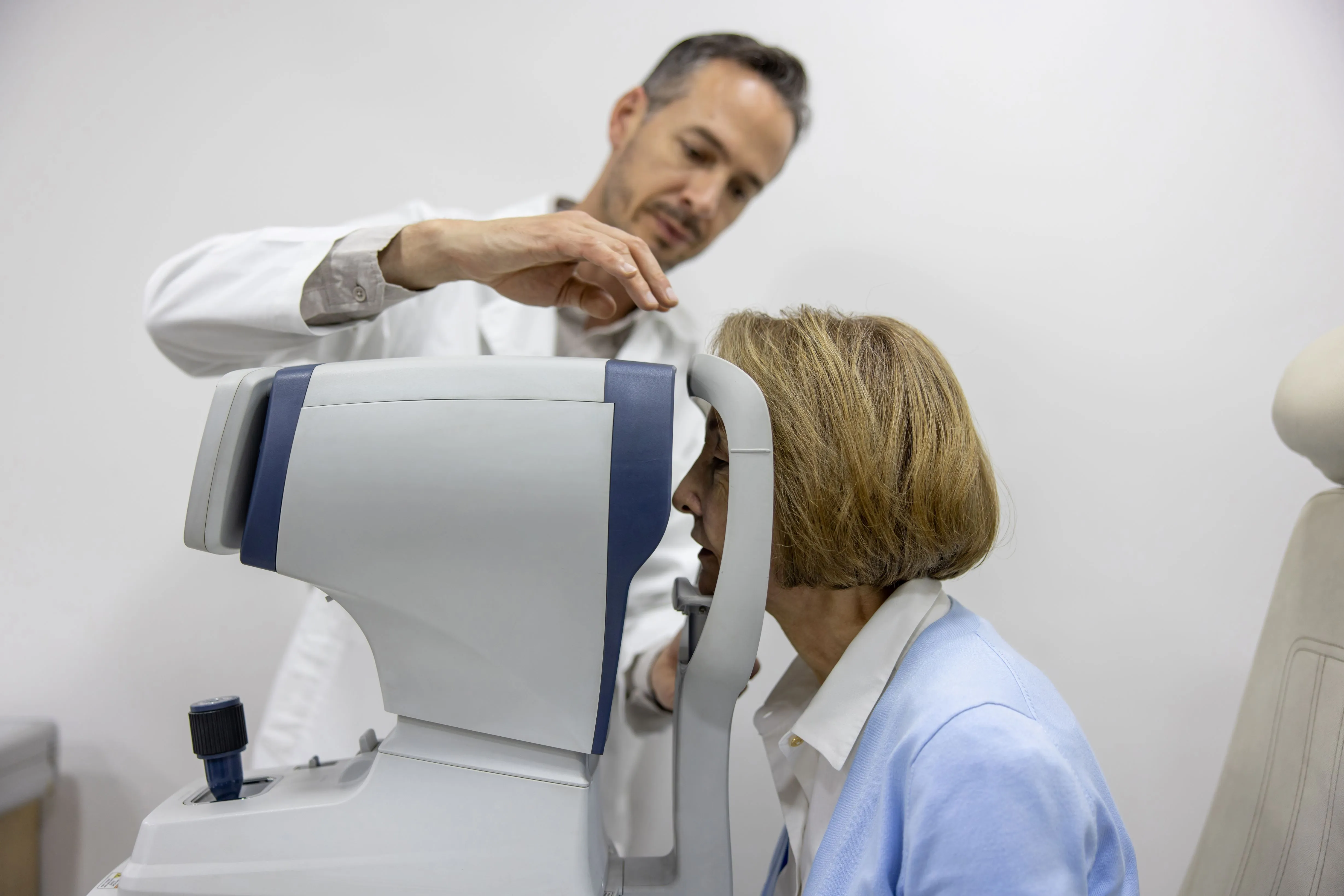
The advance could revolutionise monitoring of kidney disease, which often progresses without symptoms in the early stages.
Experts say the technology has potential to support early diagnosis as current screening tests cannot detect the condition until half of the kidney function has been lost.
Researchers used highly-magnified images to detect changes to the retina – the layer of tissue at the back of the eye that senses light and sends signals to the brain. They found that the images offer a quick, non-invasive way to monitor kidney health.
Retinal imaging
The eye is the only part of the body where it is possible to view a key process called microvascular circulation – and this flow of blood through the body’s tiniest vessels is often affected in kidney disease.
Researchers at the University of Edinburgh investigated whether 3D images of the retina, taken using a technology called optical coherence tomography (OCT), could be used to identify and accurately predict the progression of kidney disease.
OCT scanners – used in most high street opticians – use light waves to create a cross-sectional picture of the retina, displaying each individual layer, within a few minutes.
Thinner retinas
The team looked at OCT images from 204 patients at different stages of kidney disease, including transplant patients, alongside 86 healthy volunteers.
They found that patients with chronic kidney disease had thinner retinas compared with healthy volunteers. The study also showed that thinning of the retina progressed as kidney function declined.
These changes were reversed when kidney function was restored following a successful transplant. Patients with the most severe form of the disease, who received a kidney transplant, experienced rapid thickening of their retinas after surgery.
Early detection
More people than ever are at risk of kidney disease, which is often caused by other conditions that put a strain on the kidneys, including diabetes, high blood pressure and obesity.
With further research, regular eye checks could one day aid early detection and monitoring to prevent the disease from progressing. It could also allow patients to make lifestyle changes that reduce the risk of health complications, experts say.

